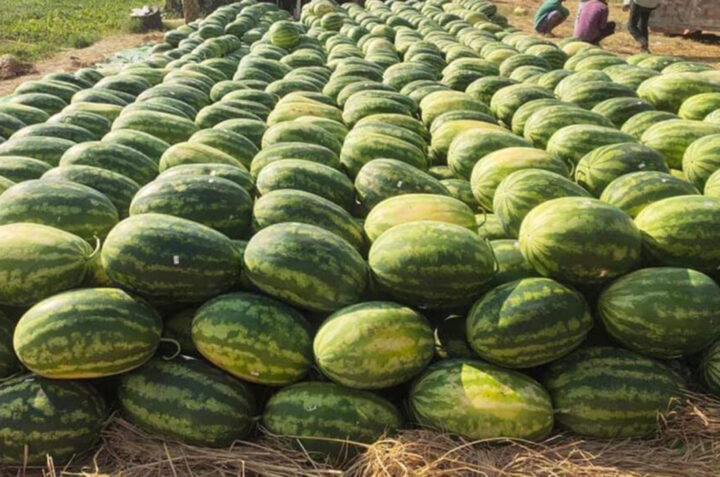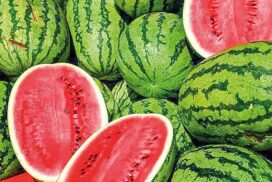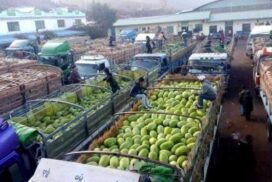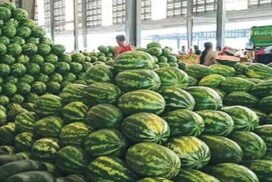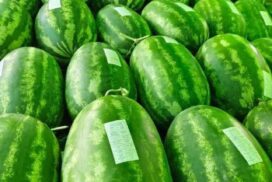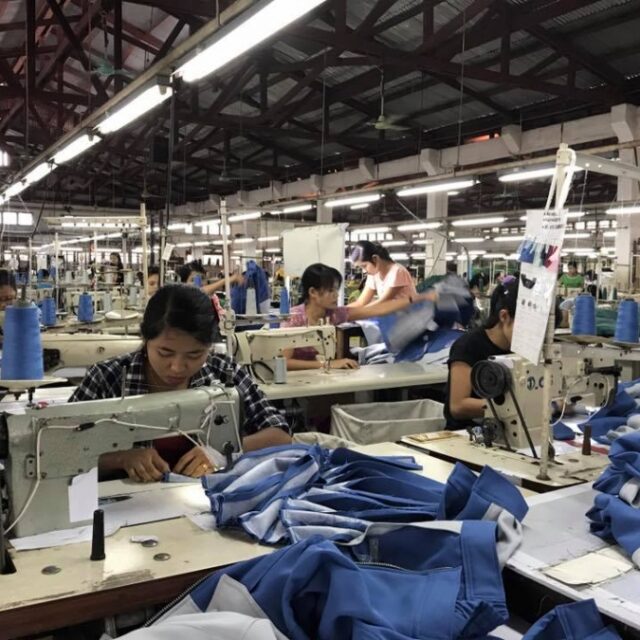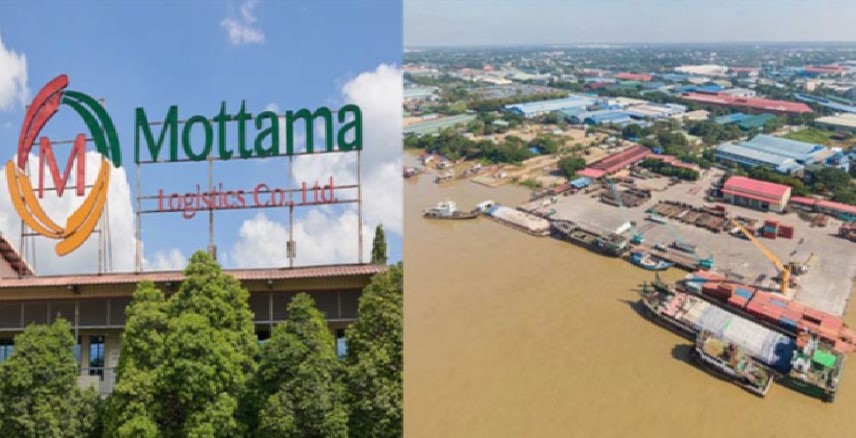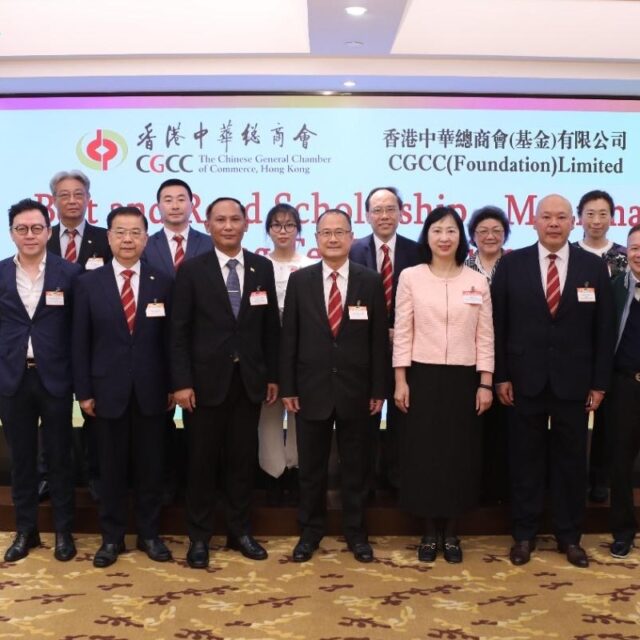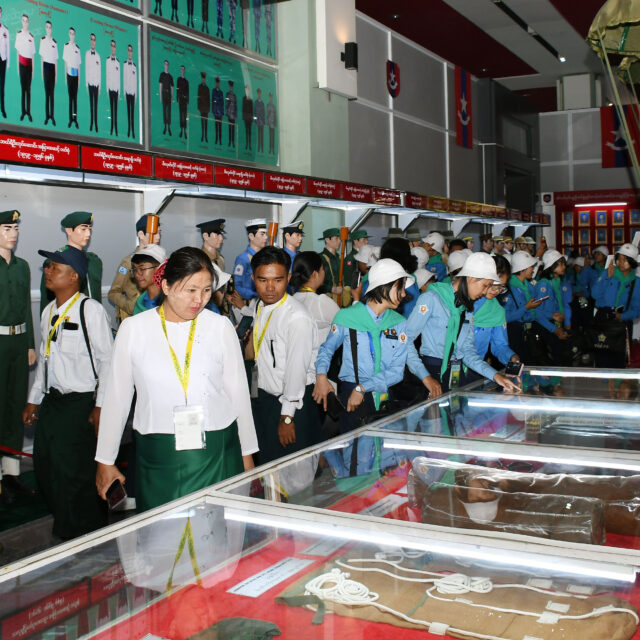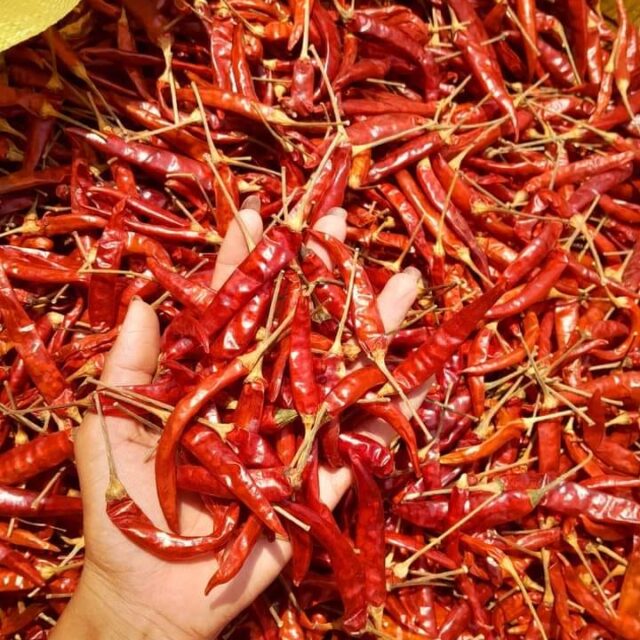Myanmar daily delivers watermelons and muskmelons with about 40 trucks, said Sai Khin Maung from Khwanyo Fruit Trading Centre.
Nonetheless, China’s COVID lockdowns affected the prices of watermelon and muskmelons. The prices are lower this year than last year’s prices, he continued.
“The market is not going well. China has not eased lockdowns. The price is pretty low this year due to the China COVID lockdown,” Sai Khin Maung said.
The prevailing prices of watermelon move in the range between 1,400 Yuan and 2,000 Yuan, while muskmelons were priced at 2,009 Yuan-4,800 Yuan depending on the quality.
Additionally, the cost of exports is too much, he added.
“The fruit export season has started. Despite uncertainty in pricing, the cost of exporting is gradually rising. There is a direct freight transport of Myanmar trucks to China and Myanmar exporters also send them with Chinese trucks. The cost of exporting watermelon is K3-4 million per tuck on Myanmar’s side and K2-2.5 million on China’s side. The exports of muskmelon cost 500,000-800,000 more than watermelon’s export costs,” Sai Khin Maung elaborated.
Myanmar’s watermelon and muskmelons are primarily exported to China. Yet, Myanmar’s traders are facing a series of challenges owing to China’s policy changes triggered by the COVID-19 cases, traders stressed.
Last year, the COVID-19 restrictions hindered Myanmar’s watermelon and muskmelon exports to China.
Chinese Customs Regulation increased delay. Long delays of trucks caused harm to watermelon quality and only one in five trucks heading to China remained undamaged with quality watermelons.
On 1 April, Nantaw and Sinphyu border posts were suspended in the wake of COVID-19 impacts. China has closed down the major border crossing Mang Wein from 30 March 2021 following the COVID-19 cases in Myanmar.
On 8 2021, the two-remaining cross-border posts Kyinsankyawt and Panseng were suspended. As a result of this, the border trade between Myanmar and China was completely halted.
Among Sino-Myanmar border posts, Kyinsankyawt border posts resumed operations on 26 November on a trial run.
At present, Myanmar daily delivers rice, broken rice, rubber, various beans and pulses, fishery products, chilli pepper and other food commodities to China through Kyinsankyawt by 70 trucks and building materials, electrical appliances, household goods and industrial raw materials are imported into the country by 30 trucks.
Myanmar has opened five border trade zones with China; Muse, Lweje, Kampaiti, Chinshwehaw and Kengtung. The majority of the trade is carried out through the Muse land border, the Ministry of Commerce’s data indicated. – NN/GNLM
Myanmar daily conveys 40 truckloads of watermelon, muskmelon to China
- November 16, 2022
- 714
